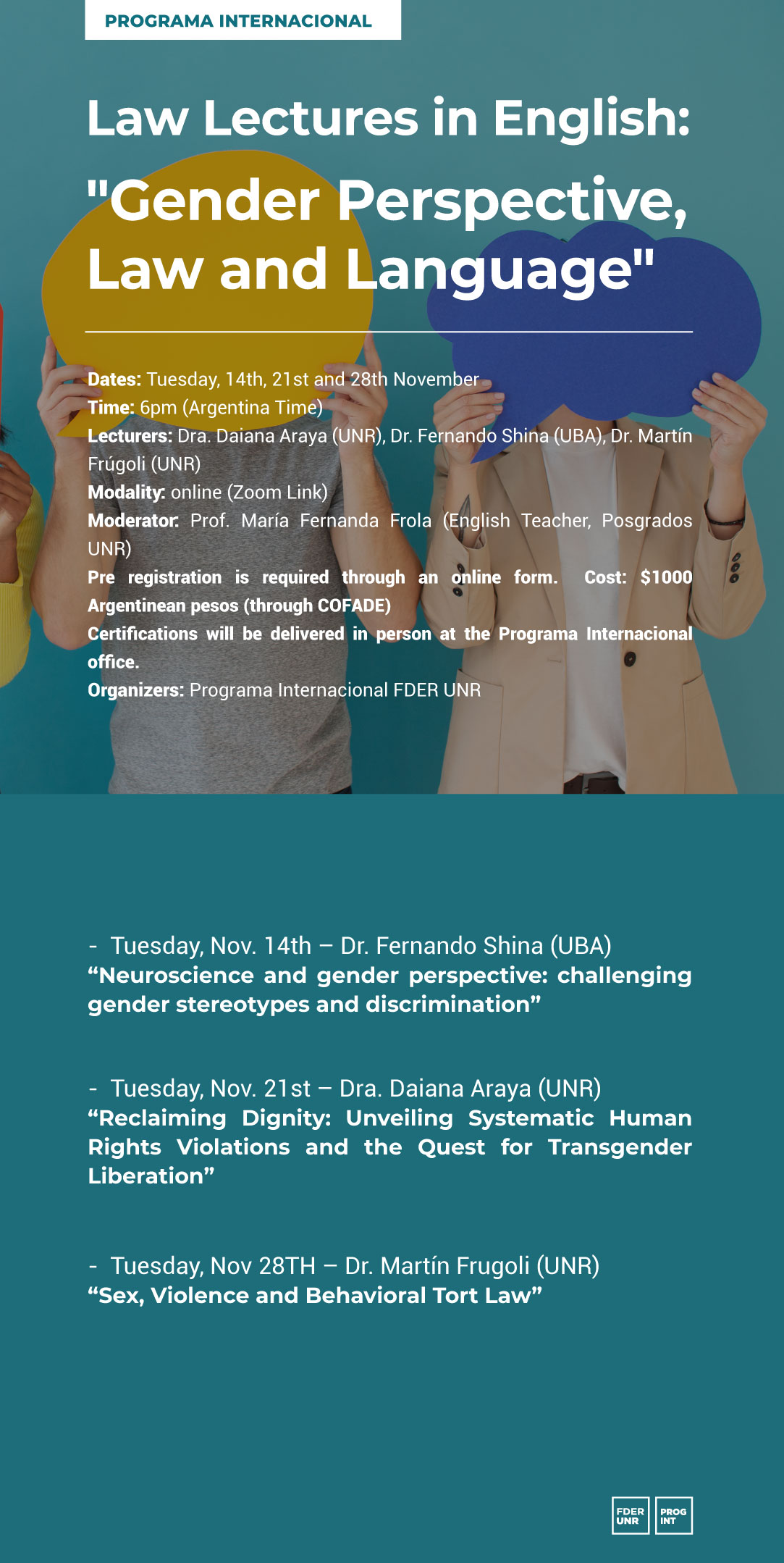 «Gender Perspective, Law and Language»
«Gender Perspective, Law and Language»
Dates: Tuesday, 14th, 21st and 28th November
Time: 6pm (Argentina Time)
Lecturers: Dra. Daiana Araya (UNR), Dr. Fernando Shina (UBA), Dr. Martín Frúgoli (UNR)
Modality: online (Zoom Link)
Moderator: Prof. María Fernanda Frola (English Teacher, Posgrados UNR)
Pre registration is required through an online form. Cost: $1000 Argentinean pesos (through COFADE). After your online registration you will receive an email with further instructions
– Tuesday, Nov. 14th – Dr. Fernando Shina (UBA)
“Neuroscience and gender perspective: challenging gender stereotypes and discrimination”
- Introduction
- Similarities and identities: the beginning of discrimination.
III. Intuitions vs Statistics.
IV The gender discrimination.
- Discrimination in the mirror.
VI How to change the habit of automatic discrimination?
– Tuesday, Nov. 21st – Dra. Daiana Araya (UNR)
“Reclaiming Dignity: Unveiling Systematic Human Rights Violations and the Quest for Transgender Liberation”
In Argentina, transgender people have endured a long history of oppression and violence, with their fundamental human rights being systematically violated. They face daily challenges including discrimination, social exclusion, and physical threats, all of which contribute to a cycle of marginalization that has persisted for decades. There is an urgent need for repair, both on a societal and institutional level, it is essential for our society to acknowledge this history of suffering and take proactive steps to rectify these injustices.
– Tuesday, Nov 28TH – Dr. Martín Frugoli
“Sex, Violence and Behavioral Tort Law”
Despite its social importance, the topic of the significance of gender in the law of torts has not received enough attention because, on its surface, the world of torts appears divided between those who suffer injury and those who inflict injury, categories that are gender neutral. Or, at least from law & economics, what general social costs are implicated in the case.
So, there is a vague awareness that particular social groups are more likely to sustain certain types of injuries; for example, women are disproportionately hurt by domestic violence, sexual abuse, and so on.
What cases do we have? Do we have statistics in Rosario about gender´s injuries and damages from our jurisprudence? What damages could we ask for in a gender tort law case? How do I measure and prove the injuries? How do you repair and deter the damages? What biases are implicated in gender tort law cases? Those are some of the questions that we could discuss from a specific tort law case in Rosario, Argentina, and from a general perspective in this field
Certifications will be delivered in person at the Programa Internacional office.
Organizers: Programa Internacional FDER UNR
![]()


Los comentarios están cerrados.